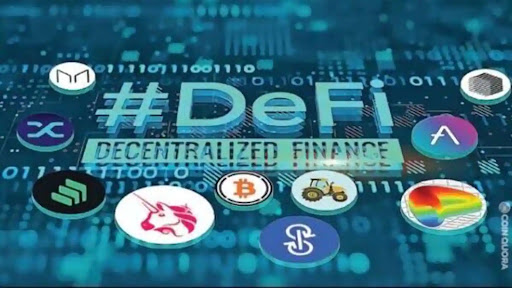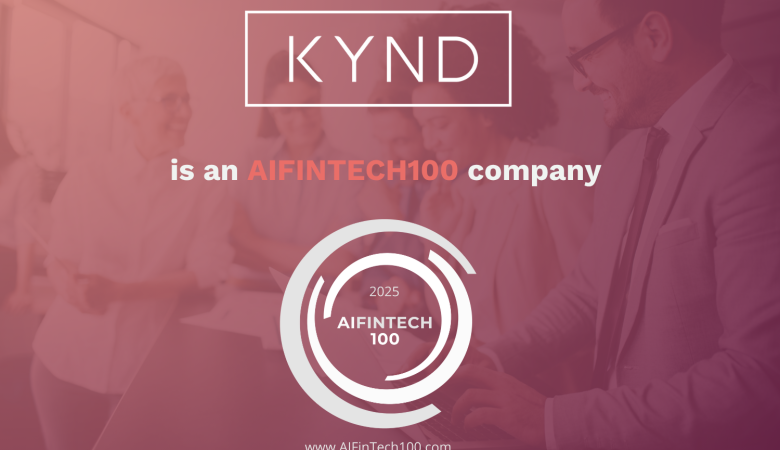Traditional banking institutions and other middlemen are doomed by DeFi. This is the reason why so many of these institutions are fighting it so hard. DeFi is, in a nutshell, the end of the power structure in financial services.
Centralized finance is the reverse of decentralized finance. As an alternative, this refers to the old ways of doing business with money and can be seen as the opposite of the first option.
In today’s banking and investing world, decentralized finance is not a new concept, but its effects can be seen across a wide range of sectors. It’s a brand-new method to make money while you sleep. It’s much better because it’s not under the control of any stock exchange or regulatory organization. Many cryptopreneurs are already investing in the Defi development platform for business purposes to generate a new revenue stream.
However, DeFi truly shines when it comes to its ability to expand the possibilities of the blockchain. There has been a tremendous advance in the ways that crypto assets and cryptocurrencies can be used thanks to DeFi, with applications like yield farming, staking, borrowing, and lending as well as DeFi exchanges existing only on blockchains and not applicable to fiat currencies or assets.
Continue reading to learn about some of the advantages of decentralized finance.
Decentralized Finance (Defi)
Before diving into the many advantages of DeFi, it’s necessary to know what it stands for. The rise and popularity of decentralized finance have further heightened the importance of blockchain and its technology’s applications in the financial sector.
“Decentralized finance,” also called “DeFi,” refers to the many blockchain-based apps that make it easier for people to switch from traditional, centralized financial institutions, services, and systems to peer-to-peer money systems. The decentralized finance ecosystem includes tokenized cryptocurrencies, crypto trading, storage, staking, and yield farming platforms, as well as online remittance and payment systems.
The current financial system is based on centralized authorities, institutions, and middlemen like a “central bank.” DeFi, on the other hand, is based on the decentralized blockchain infrastructure, mostly that of Ethereum. Smart contracts make it possible for anyone with an Internet connection to use the decentralized financial platforms and protocols that developers have made.
Advantages Of Decentralized Finance
The Ethereum blockchain has important features that can be used to make decentralized finance more open, grow, and keep money safe. Decentralized finance (DeFi) has a number of important benefits, such as the lack of financial middlemen and the centralized control that comes with them.
Decentralized finance has a number of advantages, including the following:
Permissionless
The word “decentralized” is probably the most recognizable part of Decentralized Finance’s name. Decentralized finance is accessible to anyone with an internet connection and a bitcoin wallet, no matter where they are in the world.Users can use decentralized financial apps on the blockchain without having to put any money down first.
Decentralization, one of the core ideas of the blockchain, reduces our reliance on businesses for server space, data storage, and other things. Decentralized Finance uses blockchain technology well to make sure that financial services are available to everyone and are easy to get to.
The Ethereum blockchain, which is second only to Bitcoin as the most widely used blockchain system, is the most popular platform for developing smart contracts. Using or developing a DeFi app or dealing with third parties is much easier because of its permissionless nature.
Immutability
Records on the blockchain can’t be tampered with because of their immutability. Using encryption and proof-of-work consensus processes, blockchain technology ensures complete immutability.
Also, the tamper-proof integration of data across a decentralized blockchain framework makes it more likely that fraudulent transactions and criminals will not be able to change the information.
Programmable
Another notable benefit of decentralized finance is the use of smart contracts to execute financial transactions and generate digital assets on the fly. When a term in an agreement or contract is met, a computer program or transaction protocol is used to automatically document, carry out, or control financial transactions and legal events.
Thanks to smart contracts, each party in a transaction or agreement are immediately certain of the outcome, without any time loss or involvement from an intermediary. Using smart contracts to automate a workflow, the following steps can be taken when certain conditions are met.
Transparency
One of the biggest benefits of the DeFi space is that it guarantees better security that can’t be changed. Another is that it makes things more clear. The cryptographic rules that make up the blockchain make sure that data is only recorded after its legitimacy has been checked. With the increased visibility provided by decentralized finance applications, clients are better equipped to identify and avoid potentially harmful business practices and financial scams.
Every user gets access to the network’s actions and the ability to analyze data thanks to transparency. It is possible for anybody to audit, build upon, or read the open-source code of any Ethereum-based decentralized finance system.
Self-Custody
When clients use Web3 wallets to interact with permissionless protocols and applications, they get to keep control of their crypto assets and currencies and all of their private data.
Cost-Effective
Blockchain technology, which uses decentralized finance, makes it possible for transactions to cost less, be processed faster, and be handled automatically.
P2P Applications
Peer-to-peer lending and borrowing have gotten a big boost because of decentralized finance. End users gain a lot from these solutions, and clients may rest easy knowing that smart contracts will be integrated into their systems.
Financial intermediaries are no longer necessary when smart contracts are integrated into DeFi applications. Furthermore, it examined the procedures for borrowing and lending.
Tokenization
It’s impossible to talk about decentralized finance without addressing tokenization, which is a huge benefit. After a couple of years of the Ethereum boom, tokenization became one of the most important subjects in the blockchain industry. Cryptocurrency tokens can be used in a variety of ways and have a variety of properties. Examples of tokens include native utility tokens for decentralized applications and security tokens.
Tokens come in a variety of shapes and sizes, each with its own set of capabilities. While a security token can be used to represent digital shares in some situations, a real estate token can be used to own a piece of real estate.
Many additional digital and physical assets, such as fiat and digital currencies, gold, or even oil, could be made better accessible to DeFi users through tokenization.
Conclusion
To effectively determine the value of decentralized finance today, one needs only to look at the abundant benefits of decentralized finance. Even though traditional banking rules are being questioned, DeFi is making it easier for blockchain technology to be used more and more in the financial sector.






xepyaxdjgmmuqxbpuwaqyszestjwcj https://vircopal.fr/wp-content/maintenance/online-casino-world-of-opportunities-and-risks.html
Your article helped me a lot, is there any more related content? Thanks!
I don’t think the title of your article matches the content lol. Just kidding, mainly because I had some doubts after reading the article.
This is a theme which is forthcoming to my verve… Diverse thanks! Faithfully where can I notice the connection details in the course of questions?
This is the type of post I recoup helpful.